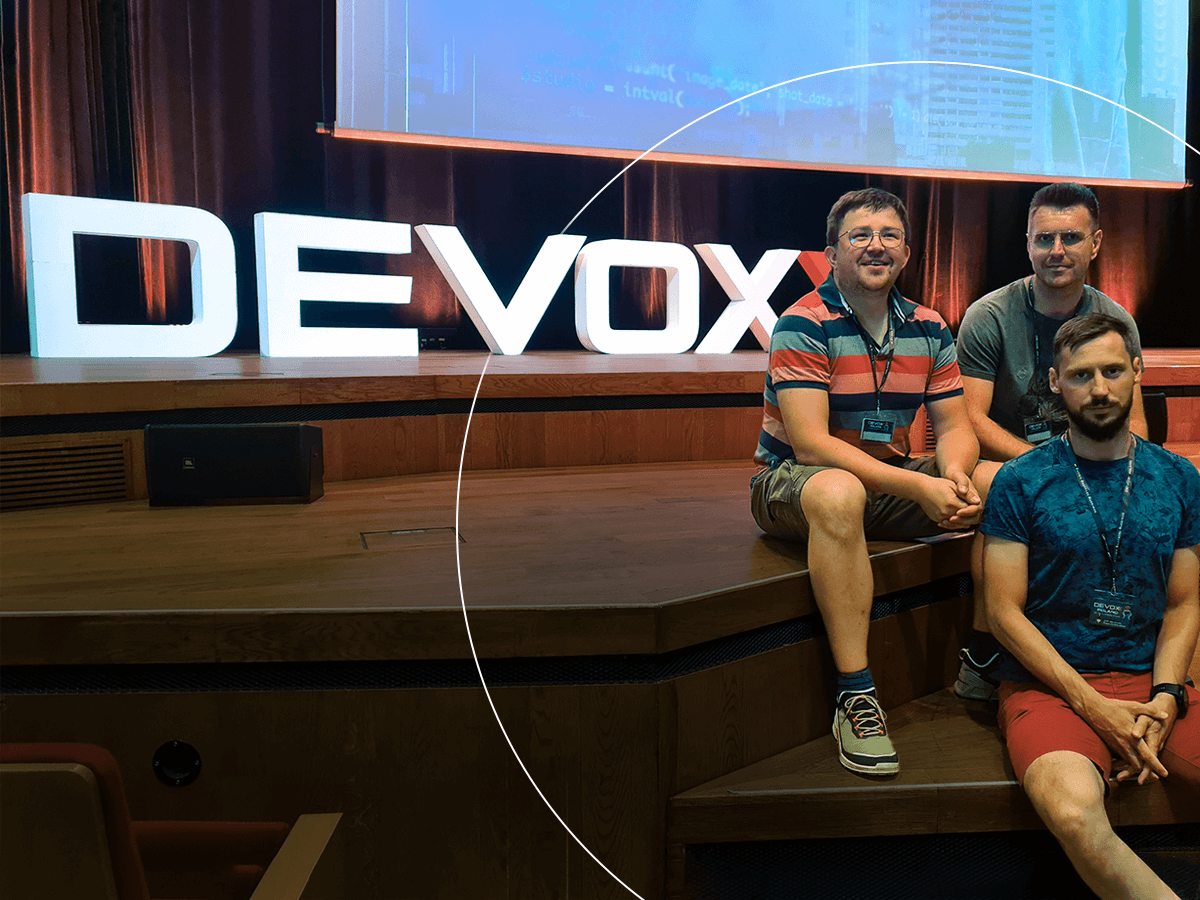
Let’s jog our memory: three weeks ago our developers found themselves in Cracow, attending the largest Java conference in Poland. If you couldn’t be there, don’t fret – we’ve got a short and sweet run-down for you: the three talks our team considered the most interesting.
How our brains play tricks on memory: the brain as a story engine
Have you ever argued with a friend over what really happened on a day in the past? Both of you were there, but now your recollection of the events differs. For example, you might disagree on who accompanied you, who said what, or even what you did.
Christina Aldan explored some of the reasons for such discrepancies in her keynote speech at Devoxx: “This Talk Won’t Change You, But How You Remember It Will.”
Why will it change, though? Well, human memory is biased towards sensory and emotional stimuli. Whatever triggers our senses (especially the sense of smell) and emotions (for example fear or awe) imprints itself in our minds far better than anything else. Over time, our brains discard the rest: minor characters, settings, dates, etc., leaving only that which they think matters for our survival.
But here’s the rub: we don’t like plot holes, and these inevitably arise when our memories get edited. So what do our brains do? Whenever we try to recall an event, they fill in the plot holes with whatever they can find at the moment. In other words, our memories get slightly rewritten every time we retrieve them.
Pretty mindblowing if you ask us.

Outside the conference center
2. How to reduce memory use in the cloud? Build Cloud Native Java Applications with GraalVM and Micronaut
Another speech that caught our attention at Devoxx touched on a subject much closer to our area of expertise: Java applications in the cloud.
Forget reflection, dynamic class loading, or runtime proxy generation. All these things will weigh your Java applications down, making them slow, inefficient, and costly – especially when running in the cloud.
Fortunately, Alina Yurenko, in her talk “Cloud Native Applications with GraalVM”, showed us a solution: the Micronaut framework.
The Micronaut framework makes it possible to create cloud-ready, modular Java applications with the advantage of its built-in GraalVM Native Image Ahead-Of-Time Compilation feature.
The Ahead-Of-Time compilation feature reduces start-up time and memory load by moving some of the resource-intensive operations from runtime to compilation time. These operations include checking, analysis, bean introspection, or dependency injection.
In short, the framework gives your Java applications a headstart in the race towards resource efficiency, which matters greatly in cloud environments as cloud providers often charge you by the byte. So we say: save yourselves some money and start crafting up apps with Micronaut. We will try that for sure.
If you want to learn more, follow this walkthrough from Oracle to build a cloud-native app in Java with the Micronaut framework. You can also read this in-depth article from InfoQ.

Inside the conference center
3. The story of Log4Shell
We would like to finish on a cautionary note and circle back to an event that reverberated across the Java community in December 2021. It was then that the news broke about a dangerous zero-day vulnerability nicknamed “Log4Shell”. Found in Log4J, an open-source logging library, it reportedly affected 90% of enterprises. We briefly wrote about it, too
The discovery of Log4Shell raised many concerns, chief among them the question whether using open source even makes sense in business. But the bug remains interesting in and of itself, from a purely technical perspective.
A security issue of such magnitude could not have been ignored at an event like Devoxx. Philipp Kenn delivered a speech on the subject, ironically called “Join the Log4Shell Party, and we just had to attend.
Philip explained how the vulnerability worked, why it is hard to detect, and how we can monitor for potential exploitation attempts.
Much as we would love to delve into the technical nitty-gritty of Log4Shell, it doesn’t fit the scope of this summary. Others, however, have written and talked extensively about the bug, and we encourage you to read up on it< or watch this video to get yourselves up to speed.
See you next time!

Our developers at Devoxx: Piotr Drajski (top left), Kamil Korga (top right), Kamil Żarnicki (bottom)
We really enjoyed this year’s edition of Devoxx Poland and hope to come back next year. Sadly, we could not attend every interesting talk, so if you think we missed something – feel free to email us or let us know in the comments!